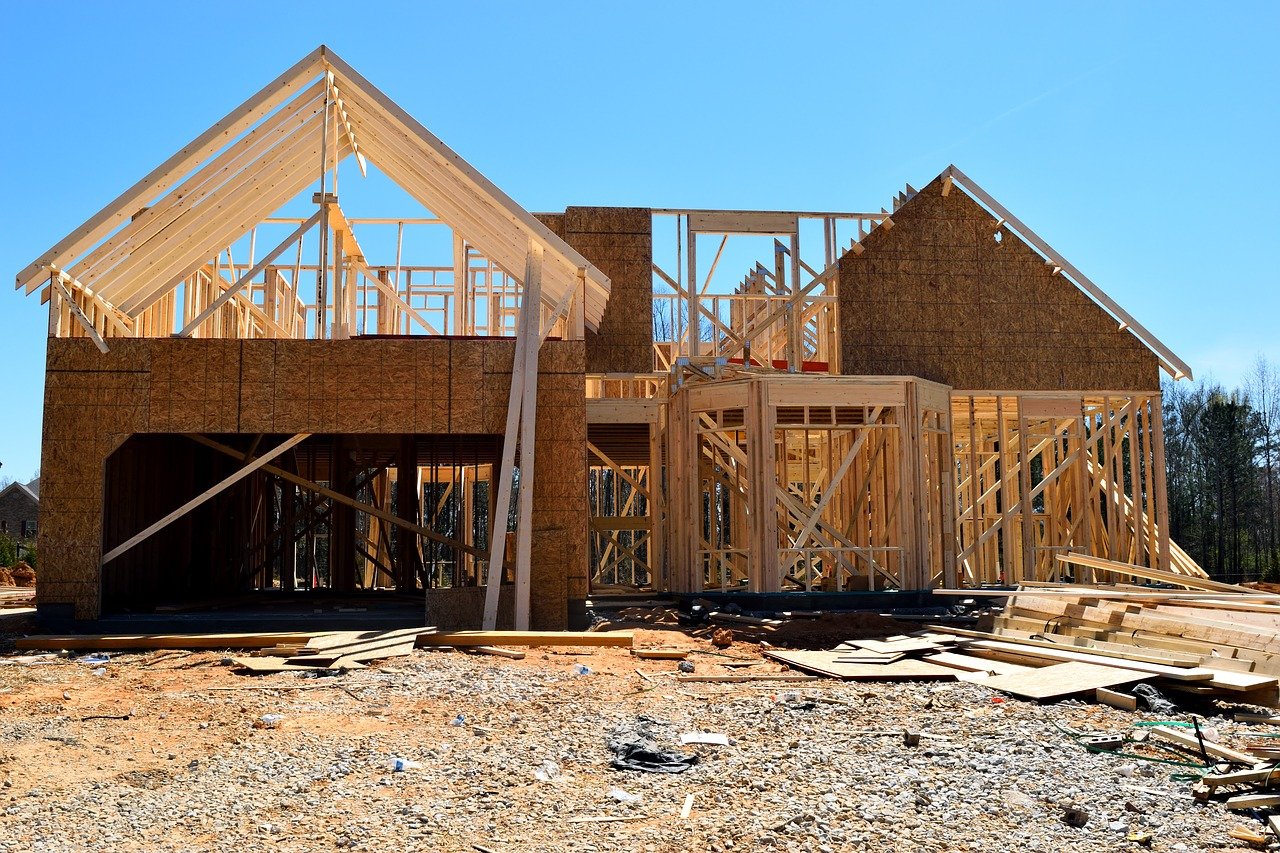To buy or to build? That’s a big question. Finding your “dream home” can be quite the challenge, especially if you have a specific location, limited budget and unique wish list in mind. Consider the following advantages and disadvantages of buying or building your next home before you determine which is the best option for you and your family.
Advantages of Buying a Home

What it boils down to is that buying a home is faster, cheaper, and more convenient. Many people find buying a home more appealing because it can be a less stressful process. You have less decisions to make and less hidden costs to sneak up on you.
Save Money
If we’re talking averages, it’s cheaper to buy an existing home than to build a new one. As of March 31, 2020, Zillow reports that the median home value in Missouri is $165,650 while the national average is $248,857. One perk of shopping for existing homes is that prices are negotiable. If you’re lucky, you might strike a great deal! Obviously, the cost of a home is going to vary greatly depending on where you look. You are probably going to pay less per square foot if you buy an existing home, but keep in mind that there might be some maintenance costs in the near future.
A Faster Process
Although the process of finding a home that meets your needs can take time and is dependent upon your local market, there are times where this process can take a few days (or even hours!). Once you’ve made an offer, you can usually move within a month or two. If you’re on a timetable, buying a home is the way to go. Utilizing a qualified realtor can help you streamline the buying process by helping you narrow your home search, guiding the negotiations, assisting with paperwork, and drawing up contracts.
The Convenient Route

There are many aspects of buying a home that are just more convenient than building one. Do you have a certain neighborhood picked out? Many times, you’re more likely to find a spot closer to town, school, work, and friends in an area that’s already developed. Land available to build on is typically on the outskirts of town. Also, the lot could already have grass, bushes, and mature landscaping. One less thing to worry about!
Buying a home comes with less decision making. The flip side of that coin is that you’re probably not going to find the perfect custom home that checks every single item on your wishlist. Have no fear! You can always make changes and updates as you go along. That’s the beauty of buying! You get to make those changes on your own timetable and budget.
Common Hurdles When Buying a Home
The Stress of Finding THE ONE

I’m not going to lie, house hunting can be a challenge. With a hot market, the competition can be fierce requiring you to act fast. On the other hand, a market with low supply may not have options available that you’re interested in and fall within your price range. Buying a home will require compromise. You’re probably not going to find a house that has the perfect floor plan in the right location with your exact style. Often buyers set aside additional money for remodeling and updating.
Surprise Expenses
Buying a home (especially an older one) can feel like buying a jack-in-the-box that’s been cranked a few times. You just don’t know what maintenance and repairs are on the horizon, even after a home inspection. Older homes may contain dangerous materials like asbestos, lead paint, or mold. If you’re aware of repairs that need taken care of, you can factor those costs into your offer or ask that they be taken care of before you buy. Ask your realtor for advice on protecting yourself against surprise expenses. Honestly, surprise expenses can pop up whether you choose to buy or to build.
Advantages of Building a New Home
Some people dream of designing their own home. From choosing the plot of land to the colors of the walls, you get to make all of the decisions. This level of customization is often incentive enough for people to want to build. Some don’t even realize there are other major advantages, as well.

More Energy Efficient
When you build a home that meets the latest building codes for heating, ventilation and cooling and use brand new insulation and materials, your home is automatically going to be more efficient. You don’t need to worry about windows that don’t seal or old roofing causing problems. Not only will this fresh craftsmanship save energy and reduce your carbon footprint, you’ll also save a buck or two on your utility bills. Win win!
Great Resale Value
If you’re not planning on building your “forever home,” you’re in luck. Most buyers out there today are drawn to newer homes. The resale value of your new build will most likely be better than it would if you bought an older home. Here’s the catch. If your home is too custom, that might be a turnoff for buyers. Although you might be super into the idea of putting in a slide instead of a staircase, your future buyer won’t be. Keep that in mind as you make design choices.
Common Hurdles When Building a Home
You Can’t Be In a Hurry

Building a home takes time. There’s no way around it. It might surprise you how long it takes to accomplish things like finding land, choosing contractors, getting building permits, and drawing up blueprints. One hiccup can make the whole project fall behind schedule. The United States Census Bureau reports that it takes an average of seven months to construct a new build. What do they say? The best things in life are worth waiting for.
Things Don’t Always Go As Planned
A certain level of flexibility is required when building a home. Maybe the floor plan didn’t turn out quite like you pictured it would or the sinks you picked out are now unavailable. Oftentimes, homeowners end up selling their previous home before the new one is complete, so they have to find a place to stay or rent in the meantime. Plans change and many decisions have to be made on the fly. But it always comes together in the end whether you make the choice to buy or to build.
You Could Go Over Budget

Building a house is typically more costly than buying an existing one. The average cost to build a house in 2017 was $428,000. That’s based on a 2,800 square foot house at $153 per square foot. Not only do newly built homes tend to be more expensive, the majority of home building projects go over budget. This happens for a variety of reasons. Poor planning, faulty materials, and environmental factors can all cost you. Things like landscaping and added design elements turn out to be hidden costs if not budgeted for from the very beginning. Substituting cheaper fixtures and materials can end up saving you thousands of dollars, but you’ll need to ask ahead of time if cost is a concern. Leaving room in your budget for the unexpected will reduce the likelihood of running out of funds.
To buy or to build? Do you have your answer? Click here to contact one of our qualified realtors to learn more about which option might be best for you.


